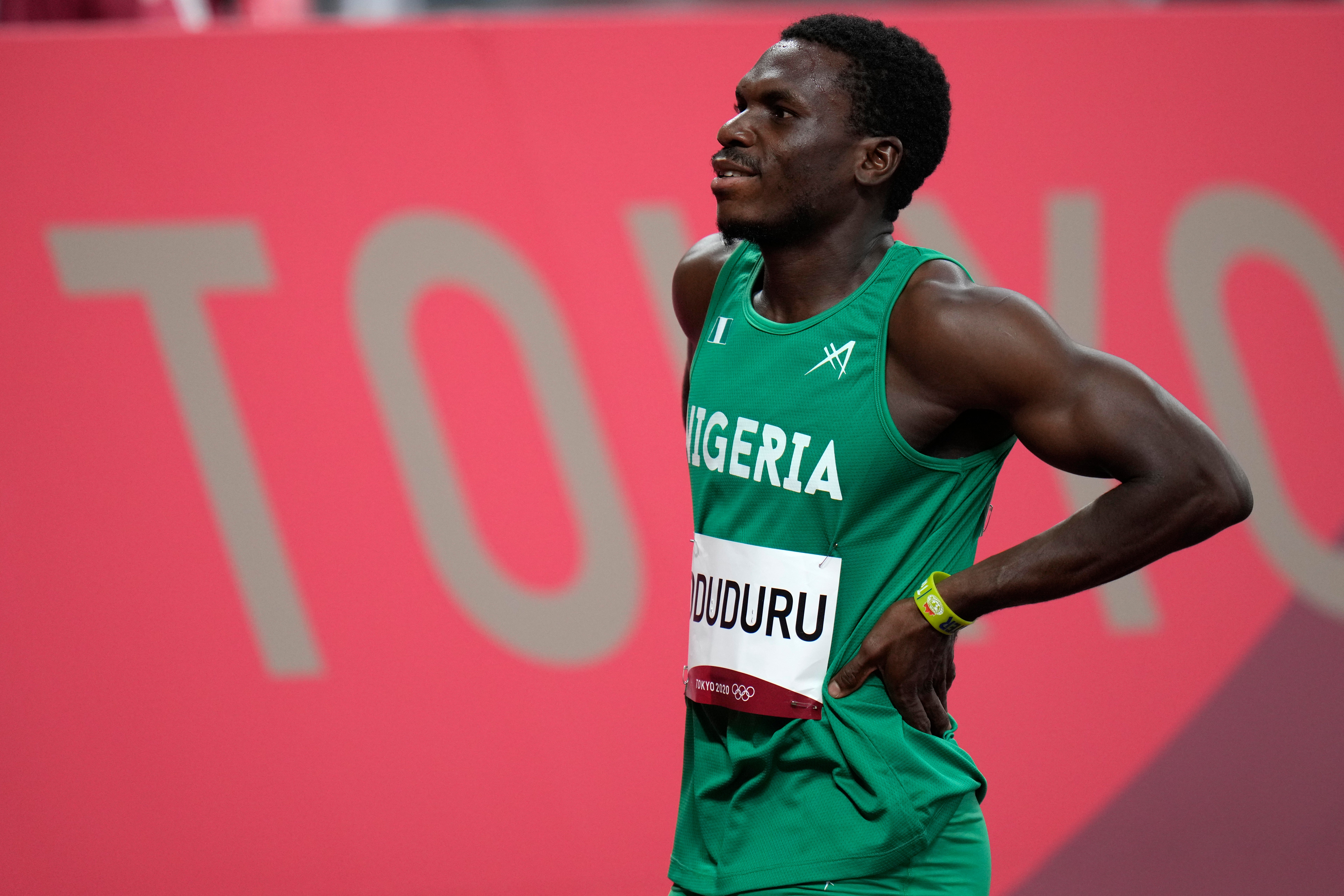Authorities seek 6-year doping ban for NCAA sprint champion
Authorities are seeking a six-year ban against four-time NCAA champion Divine Oduduru of Nigeria, whose alleged cheating was uncovered in the first case brought by U.S. authorities under a law designed to combat doping schemes across the globe

Your support helps us to tell the story
From reproductive rights to climate change to Big Tech, The Independent is on the ground when the story is developing. Whether it's investigating the financials of Elon Musk's pro-Trump PAC or producing our latest documentary, 'The A Word', which shines a light on the American women fighting for reproductive rights, we know how important it is to parse out the facts from the messaging.
At such a critical moment in US history, we need reporters on the ground. Your donation allows us to keep sending journalists to speak to both sides of the story.
The Independent is trusted by Americans across the entire political spectrum. And unlike many other quality news outlets, we choose not to lock Americans out of our reporting and analysis with paywalls. We believe quality journalism should be available to everyone, paid for by those who can afford it.
Your support makes all the difference.Anti-doping authorities are seeking a six-year ban against four-time NCAA champion Divine Oduduru of Nigeria, whose alleged cheating was uncovered in the first case brought by U.S. authorities under a sweeping law designed to combat widespread doping schemes across the globe.
The Athletics Integrity Unit, which oversees anti-doping in global track, announced Thursday that the 26-year-old sprinter, who ran for Texas Tech, has been provisionally suspended for possession and use or attempted use of multiple prohibited substances.
Oduduru did not immediately respond to messages left on his social media accounts by The Associated Press.
The AIU said Oduduru was the sprinter labeled “Athlete 2” in a complaint against “naturopathic” therapist Eric Lira, who is alleged to have supplied performance-enhancing drugs to athletes before the Summer Olympics in 2021. “Athlete 1” has already been identified as Nigeria's Blessing Okagbare, who is serving an 11-year ban.
Federal investigators used hundreds of texts between Okagbare, Lira and others as evidence to charge the therapist, who was based in El Paso, Texas. They said Lira distributed drugs, including human growth hormone and the blood-building hormone erythropoietin “for the purpose of corrupting” the Tokyo Olympics.
They charged Lira under the Rodchenkov Act, a law named after Grigory Rodchenkov, the former Moscow anti-doping lab director who blew the whistle on Russia's scheme to help athletes get away with cheating in advance of the 2014 Olympics in Sochi.
The Rodchenkov Act is not designed to go after individual athletes, but evidence collected in wider probes can then be used by anti-doping authorities to seek out violations.
Oduduru swept the 100 and 200-meter sprints at NCAA championships in 2019. He won the 200 meters in 2018 and the 200 at NCAA indoor championships the same year. He also won a number of titles in African youth competitions. He has competed at the last two Summer Olympics but failed to make a final.
___
AP college sports: https://apnews.com/hub/college-sports and https://twitter.com/AP_Top25